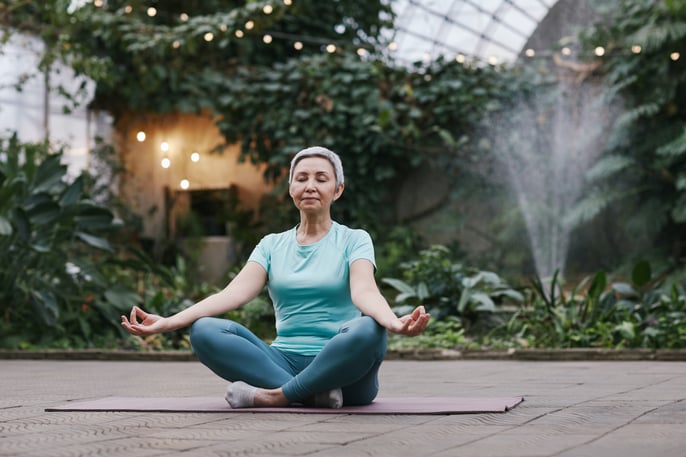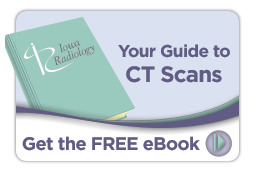
In your 50s, your body changes in important ways. Staying healthy and strong takes more effort than it used to, but it’s well worth it! Follow these tips to feel your best and help your body carry you through this decade with grace.
Love your bones.
The Calcium Question
It’s well known that osteoporosis disproportionately affects women over 50. In fact, it’s estimated that the condition will cause about half of women over 50 to break a bone. It’s also well known that calcium is necessary for strong bones. Our bodies release calcium that is stored in our bones to carry out basic functions and then rebuilds these stores. When the body’s ability to rebuild calcium stores falls behind what’s lost, bones lose density.
This is why many health professionals recommend that women over 50 get at least 1,200 mg of calcium per day. This recommendation isn’t unanimous, however. That’s because the 1,200 mg recommendation was based on just a couple of brief studies conducted in the 1970s. More recent studies suggest that high doses of calcium don’t prevent bone fractures and are actually associated with an increased risk of kidney stones and heart attack.
So, what’s the solution? Harvard School of Public Health Chair Dr. Walter Willet suggests aiming for 500–700 mg of calcium per day as well as 800–1,000 IU of vitamin D, which helps our bodies absorb calcium. Research also suggests that relying on dietary sources of calcium rather than supplements not only avoids the risks involved with high calcium dosage but also supports better bone health, even with less overall calcium intake.
Weight-Bearing Exercise
Weight-bearing exercise helps build strong bones much the same way that it helps to build strong muscles: by making them work against gravity. You don’t have to lift weights to get weight-bearing exercise. There are many different forms, and you can get a lot of benefits from using just your own body weight! Some examples include
- Walking, hiking, jogging, or running
- Climbing stairs
- Dancing
- Yoga
- Tai Chi
- Using an elliptical machine
An added bonus of many types of weight-bearing exercise is that they can also help you improve your balance, so you’re less likely to suffer a fall that may break a bone. If you’re not already in an exercise habit, it’s a good idea to talk with your doctor about what types of exercise are most appropriate for you. If you’ve already experienced some bone loss, lower-impact exercises may be advised.
Bone Density Scanning
Menopause is one factor that puts women at high risk for osteoporosis. If you’re at risk, your doctor may recommend a bone density test. This is typically done with low-dose X-ray technology called dual-energy X-ray absorptiometry (DEXA) scanning. The test is painless and takes just about ten minutes. The results will indicate your current bone mass and whether it suggests a heightened risk of fracture. Your doctor can then use this information to prescribe a course of action to best protect your bone health.
Build your muscles.
After menopause, women tend to lose not just bone density but also muscle mass. At the same time, they tend to accumulate more visceral fat, which is associated with serious chronic illnesses like heart disease, high blood pressure, and type 2 diabetes. Since the body burns calories more efficiently when it carries more muscle mass, working on keeping your muscles strong can address both of these problems at once. Many of the same exercises that support bone health will also help you maintain muscle mass.
Take care of your heart.
Estrogen is thought to provide some protection to the heart, and its natural decline in menopause may play a role in the onset of heart disease in women. Women also tend to experience increased blood pressure and higher LDL (“bad”) cholesterol levels during this time. The American Heart Association (AHA) recommends protecting your heart health with regular exercise, proper nutrition, and avoiding unhealthy habits such as cigarettes.
Exercise
AHA guidelines recommend a minimum of 150 minutes per week of moderate exercise, 75 minutes per week of vigorous exercise, or a combination of the two. Ideally, this time would be spread over the course of the week. The AHA also recommends at least strength training at least two days per week, which can make it easier to maintain muscle mass and keep body fat at a healthy level. That doesn’t mean that sitting around the rest of the time is healthy, though. Overall, minimize your sedentary time and aim to be at least lightly active for five hours or more each week.
Nutrition
Getting proper nutrition can help to prevent a number of serious health problems, including heart disease. A heart-healthy diet includes plenty of vegetables and fruits, whole grains, and lean proteins such as low-fat dairy, nuts and legumes, skinless chicken, and fish that’s high in Omega-3 fatty acids, such as salmon and albacore tuna.
Cardiac Calcium Scoring
If you’re at risk for coronary artery disease, your doctor may recommend cardiac calcium scoring. This test uses a CT scanner to take images of the coronary arteries in order to reveal accumulated calcified plaque. Fats and other substances can build up and calcify in the arteries, restricting blood flow and causing coronary artery disease (CAD). This leads to an increased risk of heart failure, heart attack, or stroke.
A cardiac calcium score indicates the amount of calcified plaque in the coronary arteries, expressed as a number between zero (indicating no evidence of coronary artery disease) and over 400 (extensive evidence of CAD). This information can help your doctor make the most appropriate recommendations for protecting your cardiac health.
Taking excellent care of your body in your 50s will help you feel your best throughout middle age and beyond. Show yourself the love you deserve by nurturing your body and giving it what it needs to stay strong.
Iowa Radiology is proud to be a valued resource for health information. We regularly update our blog with health insights and tips. To learn more about CT exams, including cardiac calcium scoring, download our free ebook.
Resources
American Heart Association Recommendation for Physical Activity in Adults and Kids. https://www.heart.org/en/healthy-living/fitness/fitness-basics/aha-recs-for-physical-activity-in-adults. Reviewed April 18, 2018. Accessed March 3, 2021.
Belly Fat in Women: Taking—and Keeping—It Off. MayoClinic.org. https://www.mayoclinic.org/healthy-lifestyle/womens-health/in-depth/belly-fat/art-20045809. Published June 14, 2019. Accessed March 3, 2021.
Exercise and Bone Health. American Academy of Orthopaedic Surgeons. https://orthoinfo.aaos.org/en/staying-healthy/exercise-and-bone-health/ Published July 18, 2020. Accessed March 3, 2021.
How Much Calcium Do You Really Need? Harvard Health Publishing. https://www.health.harvard.edu/staying-healthy/how-much-calcium-do-you-really-need. Published July 2015. Updated September 11, 2019.
Menopause and Heart Disease. American Heart Association. https://www.heart.org/en/health-topics/consumer-healthcare/what-is-cardiovascular-disease/menopause-and-heart-disease. Reviewed July 31. 2015. Accessed March 3, 2021.
3 Diet Changes Women Over 50 Should Make Right Now. MayoClinic.org. https://www.mayoclinic.org/healthy-lifestyle/nutrition-and-healthy-eating/in-depth/3-diet-changes-women-over-50-should-make-right-now/art-20457589. Published October 11, 2019. Accessed March 3, 2021.
Washington University School of Medicine. Dietary Calcium Is Better Than Supplements at Protecting Bone Health. https://www.sciencedaily.com/releases/2007/06/070614112433.htm. Published June 15, 2007. Accessed March 3, 2021.
What Women Need to Know. NOF.org. https://www.nof.org/preventing-fractures/general-facts/what-women-need-to-know/. Accessed March 3, 2021.


